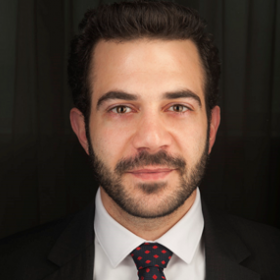
Third Abu Dhabi Process Report
On August 9, 2011, the EastWest Institute released Seeking Solutions for Afghanistan: Third Report on the Abu Dhabi Process, a report based on talks between Afghan and Pakistani leaders held in Abu Dhabi. Part of an ongoing series facilitated by EWI and sponsored by the Abu Dhabi government, the meeting aimed to build bilateral trust and produce new security solutions for the region.
“Participants agreed that the relationship between the United States, Pakistan and Afghanistan will determine the success of reconciliation. The recent increase in tensions between Afghanistan, the U.S. and Pakistan gives reason for concern,” said Guenter Overfeld, EWI Vice President and Director of Regional Security.
Discussions with the insurgency require that Kabul and the international community make more efforts to work towards a successful transition not only in the military field, but also through strengthening good governance and economic development. A political settlement is particularly urgent, according to participants, given that NATO intends to hand over responsibility for Afghanistan’s security to the government in Kabul by 2014.
To speed up reconciliation, participants repeated their earlier call for an “address,” or standing political office, for the Taliban. With an office, it would be easier to streamline fragmented negotiations efforts and ensure the safety of negotiators.
Participants also discussed how to build intergovernmental trust, recommending the establishment of a Pakistani body committed to working with the Afghan High Peace Jirga and a format for talks between the United States, Pakistan and Afghanistan that is more effective than the current trialogue meetings.
“It is difficult to imagine that a final settlement can be achieved without greater clarity on the future of the U.S. military presence in Afghanistan,” the report points out.
Still, participants emphasized that “reconciliation must be Afghan led and Afghan owned.” They called on Afghan authorities to deliver better public services, improve governance and emphasize that there will be no return to the Taliban policies of the 1990s.
“Ironically, some of the older Taliban leaders, who are committed to a largely nationalist agenda, may be less militant on these issues than the ‘neo-Taliban,’ the younger generation of Taliban leaders,” participants observed. “It may be easier to strike a deal with the Taliban now, while the old leadership is still in place, than with their successors.
The report also stresses that reconciliation must not jeopardize the Afghan constitution and human rights. “Any return to the Taliban policies of the 1990s, including their attempts to banish female education, would be a recipe for disaster,” it states.
Click here to download the first and second reports from the Abu Dhabi Process

